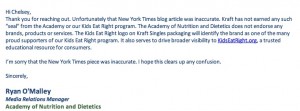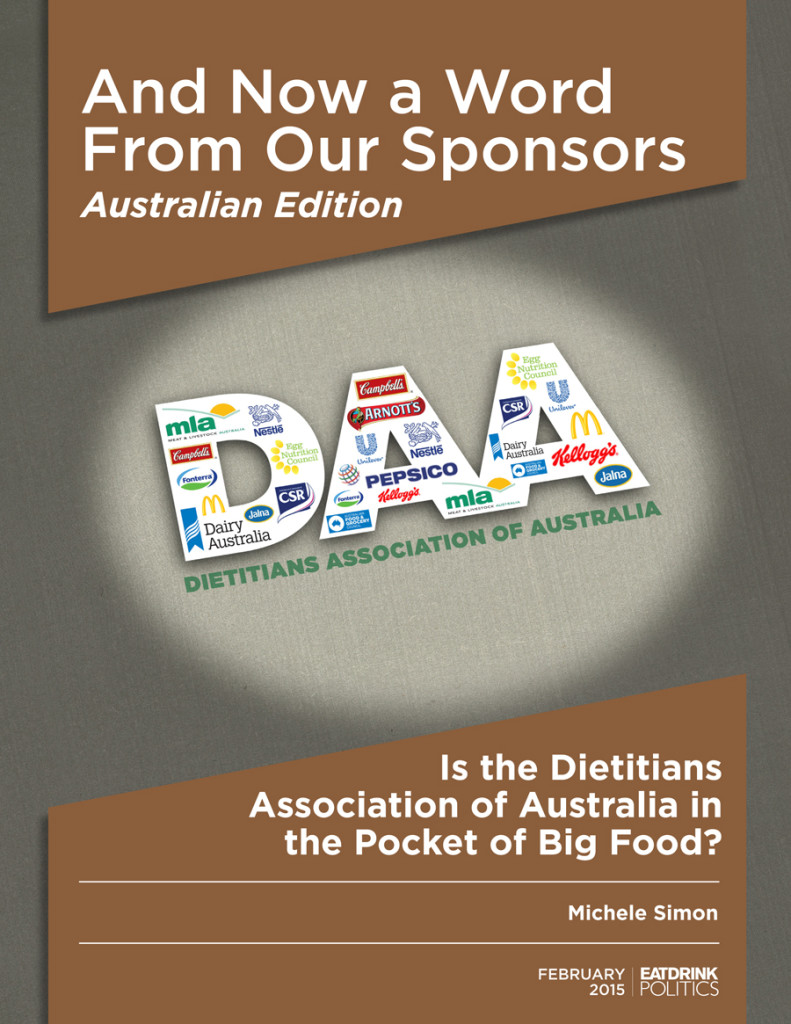A reader, Betsy Keller, forwarded a message she received because she belongs to the Academy of Nutrition and Dietetics, (formerly the American Dietetic Association), the professional association for Registered Dietitian Nutritionists.
From: “Today’s Dietitian” <todays_dietitian@gvpublishing.com>
Subject: Questions about pesticides and food? We have answers.
The message originates from Bayer, the German drug company that bought Monsanto a few years ago.
Monsanto invented the herbicide glyphosate, which is used to kill backyard weeds as well as those that occur in fields of GMO corn and soybeans,.
Glyphosate has been linked to cancer risk, particularly non-Hodgkin lymphoma.
Tens of thousands of people with non-Hodgkin lymphoma are suing Bayer for glyphosate-related damages. The courts have ruled in favor of several such plaintiffs.
Bayer has agreed to pay $10 billion (!) to settle these lawsuits.
In the message to dietitians, Bayer says:
Pesticides enable farmers to produce safe, quality foods at affordable prices.They also help farmers provide an abundance of nutritious, all-year-round foods, which are necessary for human health. Crop quantity and quality rely on crop protection. For example, a U.S. study estimated that without fungicides, yields of most fruit and vegetables would fall by 50-90 percent. Moreover, pesticides decrease exposure to food contaminated with harmful micro-organisms and naturally occurring toxins, preventing food-related illnesses.
Oddly, the Bayer message says not one word about glyphosate, non-Hodgkin lymphoma, or the lawsuits.
Bayer must want dietitians to reassure their clients that pesticides like glyphosate are safe. Bayer must not want dietitians to link glyphosate to cancer risk.
I can’t help thinking that Bayer must have paid Today’s Dietitian to send this message to the AND membership.
I can’t think of any other reason why this association would allow a message like this to be sent to its members.
Correction
Several readers wrote to point out that the Bayer message comes from Today’s Dietitian, not from the Academy.
For example, Nancy Teeter, RDN, gave me permission to quote her:
Thank you for all you do to keep the public informed. As a registered dietitian nutritionist, I was appalled that Bayer sponsored an educational program for us. I believe you are correct when you say follow the money. Today’s Dietitian is a private company and appears to accept advertising dollars from anyone. AND charges organizations for the use [of] the mailing lists, so everyone wins financially. At the same time, the reputation of our organization is diminished.
She points out: “They also sell their email lists to advertisers.”
Mary Purdy, MS, RDN, who also gave permission, writes:
Thank you for spreading the word about this. A group of dietitians (myself included) are formulating a letter in response to this and I have already been in touch personally with Today’s Dietitian about this issue which I find extremely concerning.
It is very important to clarify that this message came from Today’s Dietitian, (https://www.todaysdietitian.com/) which is a totally separate entity from the Academy of Nutrition and Dietetics. https://www.eatright.org/
The Academy has its own set of issues, but I wanted you to be sure that your readers understand that the pesticide info from Bayer came from an eblast from the publisher and business ” Today’s Dietitian”. This org definitely needs to be held accountable for this kind of irresponsible corporate sponsorship that spreads erroneous and harmful information so thank you for your efforts here.
She adds: “I also let Today’s Dietitian know that I would be unsubscribing from their eblasts and have encouraged others to do so as well.”
She also adds: “And yes, you are right. Bayer is an official sponsor of Today’s Dietitian and pays them. They were also one of the sponsors of their recent symposium (At which I spoke… ironically about environmental chemicals and supporting detoxification and elimination organs with diet!). Here is the website: you can go to “Sponsors” and see Bayer there among others. https://www.todaysdietitian.com/ss20/”
And she forwarded the letter she received from a rep from Today’s Dietitian. Here are the relevant excerpts:
Thank you for reaching out and expressing your thoughts and concerns regarding the Bayer ad and Today’s Dietitian….Having been a friend of TD for so long, I’m sure you are aware that the primary support for the publication comes from advertising revenue. Without advertisements, TD does not exist. That said, as with other advertising-driven business models, TD does not endorse or support any product, service, or entity advertised in the magazine or its brand extensions. TD simply offers vehicles for advertisers to reach the brand’s audience.
While you may not agree with the advertisement in question, the advertiser obviously finds value in reaching registered dietitians. Otherwise, they would not be interested in promoting to this professional audience. Just as any other audience that consumes advertising can use its own judgement to decide whether or not to explore an advertised item, so too can the TD readership decide whether or not to pursue any further engagement with the advertiser.
Dietitians: here’s your chance. Act now.
- Unsubscribe to Today’s Dietitian
- Tell AND you do not want your contact information sold to advertisers.




 As the Times understates the matter,
As the Times understates the matter,

